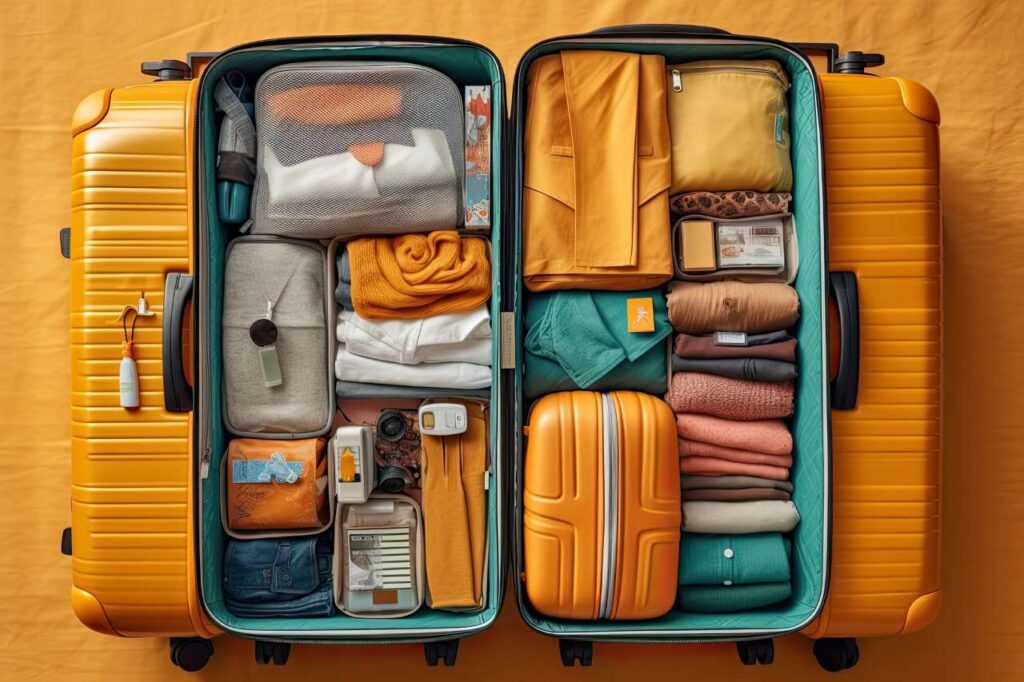
Travel is exhilarating, but also unpredictable. A delayed flight, a sudden shift in weather, or even the absence of something as basic as a power outlet can turn a smooth journey into a frustrating ordeal. Preparation is what separates the well-travelled from the perpetually flustered, and it starts with what you put in your bag. The difference between comfort and chaos often comes down to a handful of smart items – the ones you forget only once before they become non-negotiable.
Why Do Travel Essentials Matter?
The concept seems simple: pack what you need. Yet anyone who has returned from a trip realises how easy it is to misjudge. Overpacking clutters your suitcase with items that never leave it. Underpacking leaves you scrambling in unfamiliar cities, paying inflated prices for something you already own. Not only is this inefficient, but it takes time and energy you’d rather spend experiencing the place you’ve come to see. Essentials aren’t just about convenience – they’re about ensuring that no matter where you land, you’re equipped to adapt.
How Can You Choose The Right Essentials?
There’s no one-size-fits-all packing list. A weekend city break calls for something different than a trek across rural landscapes. Still, there are universal principles. Focus on versatility. Prioritise function over novelty. And ask yourself this: if I didn’t have access to shops for two days, what would I regret not bringing? That filter strips away the clutter and leaves you with what matters.
10 Must-Have Travel Essentials
- Universal travel adapter – Airports sell them for a reason. Power is a lifeline, whether for navigation, communication, or simply charging your camera. A universal adapter spares you the trouble of juggling different plugs.
- Noise-cancelling headphones – Trains, planes, even hotel corridors can be relentless. Cutting the background noise isn’t just about entertainment, it’s about preserving energy.
- Portable power bank – Not only is battery drain inevitable, but finding an outlet when you need one is rarely guaranteed. A slim, reliable charger keeps your devices alive when it matters.
- Reusable water bottle – It keeps you hydrated, reduces waste, and saves money. Many airports and cities now have refill stations, making plastic bottles unnecessary.
- Lightweight rain jacket – Weather forecasts can be wrong. A compact jacket stashed in your bag prevents you from being caught unprepared.
- Packing cubes – They’re not gimmicks. They transform an unruly suitcase into something manageable, especially when moving between cities or climates.
- First-aid basics – A few plasters, painkillers, and antiseptic wipes take up almost no space but solve problems when you need them most.
- Sleep mask and earplugs – Planes don’t dim their lights for your comfort, and hotel walls aren’t always thick. Rest becomes possible with these two items.
- Comfortable footwear – Arguably the most underestimated essential. You can endure almost anything if your shoes don’t betray you halfway through the day.
- Travel documents organiser – Digital copies help, but paper still dominates visas, boarding passes, and permits. Keeping them organised is less about neatness, more about peace of mind.
What About Longer Or More Challenging Journeys?
A short city break can often be managed with little more than the basics. But once trips extend – whether for work, adventure, or exploration – the list shifts. Trekking holidays, for instance, demand a completely different preparation. When routes extend beyond paved streets into remote trails, suddenly things like water purification tablets, high-energy snacks, and technical clothing become indispensable.
And for travellers looking to push beyond casual walking into true expeditions, destinations such as Kilimanjaro have multi-day guided climbs available. These are not the kind of experiences where you improvise with what you remembered to throw into your rucksack at the last minute. They demand precise preparation, specialist gear, and a serious respect for the environment you’re stepping into.
How Does This Connect To Everyday Trips?
Interestingly, even if you’re not climbing mountains, the principle is the same. A work trip where you forget your laptop charger has the same disruptive potential as a trek without the right boots. The difference is scale, not substance. Travel throws obstacles at you. Essentials aren’t luxuries – they’re safeguards against those interruptions.
Can You Rely On Buying What You Forget?

It’s tempting to assume that anything left behind can be purchased on arrival. To some extent, that’s true. Major cities cater to travellers. But here’s where it falters: the quality is inconsistent, prices often inflated, and availability not always guaranteed. Imagine landing late at night, needing medication, or arriving in a rural location where shops are limited. Not only is this inconvenient, but it undermines the whole purpose of careful planning. Better to carry what you know works than gamble on local availability.
How Do Travel Essentials Help With Jet Lag And Fatigue?
A strange detail often overlooked is how much of travel exhaustion comes not from the time zones, but from the small discomforts layered together – noise, light, dehydration, disrupted sleep. Essentials like noise-cancelling headphones, sleep masks, and reusable bottles directly counteract those stressors. By reducing them, you reduce the drag on your body, making it easier to adjust. In other words, essentials are not only practical but restorative.
Should Every Traveller Use A Checklist?
Arguably, yes. Even experienced travellers forget basics when rushed. A structured list keeps the essentials consistent, trip after trip. There’s already a solid travel abroad checklist available for those wanting a reliable framework. It prevents the last-minute panic of second-guessing what’s in your bag and what’s not.
The Bottom Line
Essentials aren’t glamorous. They’re not the reason you travel, and they rarely show up in photos. Yet they’re the foundation on which the entire experience rests. Forget them, and you remember the absence more than the destination. Bring them, and they fade into the background – quietly ensuring everything else runs smoothly. That’s the paradox: the more invisible they are, the more vital they’ve proven to be.

